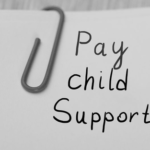“My daughter wants to live with me during the school year. Can I modify custody for that reason?”
“My son wants to live most of the time in my home after the divorce. Can he tell the judge how he feels? Will the judge listen to him?”
“How old does a child have to be before his preference matters?”
These are common questions. Parents often want to know whether a child’s preference has an impact in a custody or divorce case, and to what extent.
It Matters, But…
A child’s preference does impact the court’s decision on custody. In fact, it’s one of the “best interests” factors a judge will consider when making such a determination in any state in the USA. In North Dakota, the best interests factors are laid out in N.D.C.C. § 14-09-06.2, and factor “i” states:
- If the court finds by clear and convincing evidence that a child is of sufficient maturity to make a sound judgment, the court may give substantial weight to the preference of the mature child. The court also shall give due consideration to other factors that may have affected the child’s preference, including whether the child’s preference was based on undesirable or improper influences.
Therefore, the child’s preference can have an impact, perhaps even a “profound” impact, on a custody case, but only if it’s sufficiently proven to be a “mature” preference, and meets other criteria.
Maturity and Age
In North Dakota, there is no magical age at which a child’s preference can be considered by the court. Practically speaking though, there is probably a lower bound. A judge isn’t going to consider a four-year-old’s preference. Children eight years old have been found by the court to be old enough to state a reliable preference. It’s not unreasonable to think that the court might entertain the preference of children younger than eight, in certain cases. But it depends on the child, because children as old as ten and fourteen have been found to be unable to state a mature preference.
Generally, a child’s preference is given more weight as he or she grows older. However, what matters most to the court is the child’s “maturity,” not age. If a child is not mature, a judge may refuse to consider a child’s preference, regardless of the child’s age. If the judge finds the child to be mature, the preference of the child is only one of the best interests factors, but it is a “significant” factor that may strongly impact the court’s determination on what is in the child’s best interests.
How does a judge determine if the child is “mature”? It depends on the facts and circumstances of each individual case. A judge might consider how long and how consistently the child has held the preference, the reasons for the preference, the child’s grades and intelligence, and how well the child is able to articulate his/her desire, among others. A few examples from real cases in North Dakota which might be helpful:
- Frueh v. Frueh. The child (age unstated, but inferred to be at least fourteen) wanted to live with his father, because he enjoyed the freedom on father’s farm, the checking account his father allowed him to maintain, and the money and cell phone the father provided him. The child failed to show interest in his own education, didn’t read much except for a few magazines, and didn’t show much interest in the wider world. These facts, in totality, indicated a lack of maturity, and the child’s preference was not considered.
- Kjelland v. Kjelland. The children (ages twelve, nine and seven) wanted to live with their father. They were doing well in their father’s home, were involved in many sports and activities, and had excellent grades in school. The children liked the setting of their father’s home, the school they attended (which would change if mother obtained custody), as well as the activities in which they participated (which would likewise change with mother). The children clearly stated their preference and had maintained the preference for some time, reporting it to the court and to the guardian ad litem. The court found the children’s preference to be “mature” and awarded custody to the father.
- Thompson v. Thompson. The children (ages 17, 14, and nearly 13) had different preferences: the oldest and youngest wanted to live with their mom, and the middle child with his dad. Each child expressed valid reasons. The eldest wanted to remain in school where mother lived, disagreed with father’s parenting “style” and “feelings,” and didn’t want any parenting time with father at all. The middle child had a close and comfortable relationship with his father, poor relationships with the other two siblings, and felt that his mother’s apartment presented undesirable living conditions. The youngest child wanted to stay with his mother because he felt pressured and uncomfortable with his father, and resented his father for disparaging his mother. The court found that all the children were sufficiently mature and expressed valid reasons for their preferences, and granted split custody in accordance with the children’s desires, after assigning a “great deal of weight” to their preferences.
- Friesner v. Friesner. Two children (teenagers), during in-chambers interviews with the judge, unequivocally stated they wanted to live with their mother. The court was convinced the children drew their own conclusions about custody aside from their parents’ pressure, and were intelligent and independent, were able to think for themselves, and told the truth. The court found that both children were mature and expressed legitimate reasons for their preferences. The court granted custody in accordance with the children’s desires, after assigning “substantial weight” to the preferences.
Check out Part II of this blog, where we’ll discuss how “improper influences” on the child’s preference can reduce the court’s reliance on the preference, the weight the court places on the preference, and how to present evidence of a child’s preference in court.
Conclusion
If you have questions regarding this topic, then seek the advice of a family law attorney. Contact the SW&L family law team at 701-297-2890 or email us.
The information contained in this article and on this website is for informational purposes only. Do not rely on the information on this website as legal advice.










